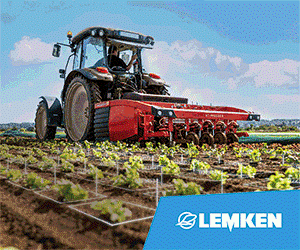The EU’s Green Deal policies could compromise European food security, the agriculture committee of Euro MPs has highlighted.
The Green Deal, adopted in 2020, is a set of policy initiatives aiming to make the EU climate-neutral by 2050. It includes the Farm to Fork strategy which sets targets to cut use of pesticides and chemical fertilisers and increase the proportion of organic production.
The committee has adopted a report on food security and the long-term resilience of EU agriculture by German MEP Marlene Mortler and has called on the European Commission to carry out a comprehensive assessment of the cumulative impact of the Green Deal on agriculture.
And it says Europe needs to develop an overarching strategy to ensure its food supply is as self-sufficient as possible.
“The pandemic and the Russian war against Ukraine have exposed structural problems in the European agriculture sector [requiring] the strengthening of food security and strategic autonomy of the EU,” the committee says.
It wants Europe to be less dependent on food imports and to support growers by encouraging new technology. It says food and agricultural products should be granted a dedicated chapter in trade agreements so that reciprocity is guaranteed.
Ms Mortler said: “We must rely more on ourselves again and reduce dependencies on third countries. The objectives of the Green Deal must be implemented in such a way that food security is not compromised and that sustainability is ensured in economic and social, as well as environmental, terms.”
Copa-Cogeca, the umbrella body for European farming unions and co-operatives, says it welcomes the intervention by MEPs, adding: “If we face tighter restrictions on cultivation and higher production standards due to the EU framework, EU farmers expect to be treated fairly by the Commission’s trade policy.
“We also welcome the attention given [by the report] to innovation; whether considering the impact that the lack of tools to protect plants might have on EU food security or further development of new breeding techniques.”
Spain has requested aid from the ‘crisis reserve fund’ of the EU’s Common Agriculture Policy to help its farmers and growers affected by the country’s ongoing drought. Growers in some parts of the country have now been told not to plant tomatoes and vegetables including carrots, broccoli and cauliflower because of water restrictions.














